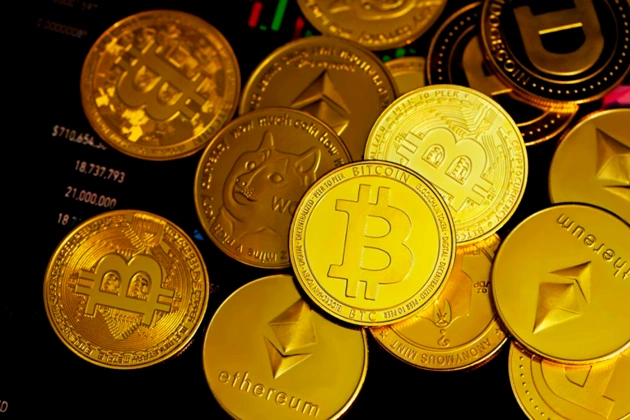Cryptocurrencies were created and launched as alternatives to fiat money and have been largely regarded as operating independently of the traditional marketplace. The decentralized nature of the assets is what made them popular in the first place, as the investors felt that they could be trusted to guarantee the privacy of those trading them. In the beginning, many didn’t even want to hear about cryptocurrencies, believing that the price fluctuations and volatility make the market fundamentally unreliable. However, things have changed rather significantly in the last few years.
Nowadays, cryptocurrencies are more involved in traditional, mainstream finance than ever before. Lawmakers understood that the general public had become increasingly interested in these holdings and decided that they needed to be integrated into traditional systems in a safe and sustainable manner. The cryptocurrency prices are still influenced by volatility, though, so having a comprehensive strategy is still very much a necessity. If you want to make sure that your portfolio is secure, you need to do your research to determine the best course of action over both the short and the long term.
And while there’s no way to determine how reliable some predictions are, traders still make sure to look into them before buying or selling. When you look into the distant future, it becomes increasingly difficult to estimate prices and predict the direction that the market will take, but trying to do so remains crucial as more and more investors look to become long-term holders and drive wealth in this manner.
The landscape
The world of finance continues to shift, with payments being an ever-changing space as well. Over the centuries, people moved from gold and silver to paper notes and, increasingly, to plastic debit and credit cards. As technology continues to evolve, society’s understanding of what constitutes money changes as well. When they were first introduced, cryptocurrencies weren’t taken seriously by many, but nowadays they’re recording growing rates of institutional adoption, a clear sign that they’re regarded as much more stable and trustworthy nowadays.
The blockchain, alongside artificial intelligence, the Internet of Things, and several other technologies, is already impacting the ways in which people conduct transactions. It took some time for cryptocurrencies to be regarded as trustworthy by investors, but they are finally starting to enter the market. However, some have begun to debate whether the rise of cryptocurrencies could signify the beginning of cash being seen as obsolete.
The future of cash
Earlier predictions estimated that cash would become less and less important over the next decade or so, especially since cryptocurrencies will become more popular and accessible. A large number of people will still have to trust the assets so that they can be considered mainstream, but that may not be as impossible as it might seem. After all, only a few years ago, nobody would have predicted that some of the world’s largest corporations, central banks, and investment companies would want anything to do with cryptocurrencies. Nowadays, many of them are major players in the ecosystem.
However, most are reluctant to claim that this will truly signify the death of cash, and it definitely doesn’t mean that fiat coins will become obsolete anytime soon. The truth is that cryptocurrencies are an addition to the financial world, not a substitute for the previous systems. While digital coins could definitely help the mainstream markets in areas such as increased transparency, crypto can also benefit from the stability of fiat.
On top of that, while some may have believed that cash is a thing of the past a few years ago, the situation is entirely different now. Infrastructure and cyberattacks can cause serious problems for people who have no cash to rely on, as digital payment solutions are naturally very vulnerable in situations such as these. As such, having physical money on hand is still crucial, especially in the event of an emergency.
Decentralized finance
Decentralized finance, also commonly referred to as DeFi, refers to a set of businesses and projects that have become popular since the introduction of cryptocurrencies to the market. Analysts have referred to the system as crypto’s answer to Wall Street, as it provides people with access to trading, lending, and borrowing tools, all in the absence of institutions such as banks and brokerages. The advantage is that the users don’t have to worry about paying the additional fees that these intermediaries demand.
Instead of these individuals, it is the smart contracts that execute the transactions after certain conditions have been met. Most apps are built on the Ethereum blockchain, which can be regarded as a pioneer in the sector. It is very helpful when it comes to keeping track of the transactions, but blockchain tech has the potential to ensure numerous applications beyond cryptocurrency use, such as the ability to create a safer and more transparent environment in logistics and supply chains.
A new financial system could very well be built someday, ideally one that combines the strengths of both traditional fiat and cryptocurrencies. The blockchain could become a new way of organizing finance and create more robust systems. However, more work and developments are needed before that stage can be reached.
The future
It’s impossible to predict how financial assets will perform over the long term, even when they’ve been around for decades. Cryptocurrencies are still fairly new and quite volatile as well, making the task even more complicated. There are still some challenges that cryptocurrencies need to face and solve if they are to become more successful. The environmental issues resulting from mining activities, which are known for being energy-intensive, are at the forefront, with data showing that some coins consume more electricity than many countries.
The fact that the regulatory landscape is not yet entirely clear and variations exist between different jurisdictions is very important as well. However, that doesn’t mean that crypto’s potential isn’t real.
If you’re an investor, remember that you should never underestimate the importance of a good strategy. Determine what your goals are and think of the best methods that will help you achieve them.










